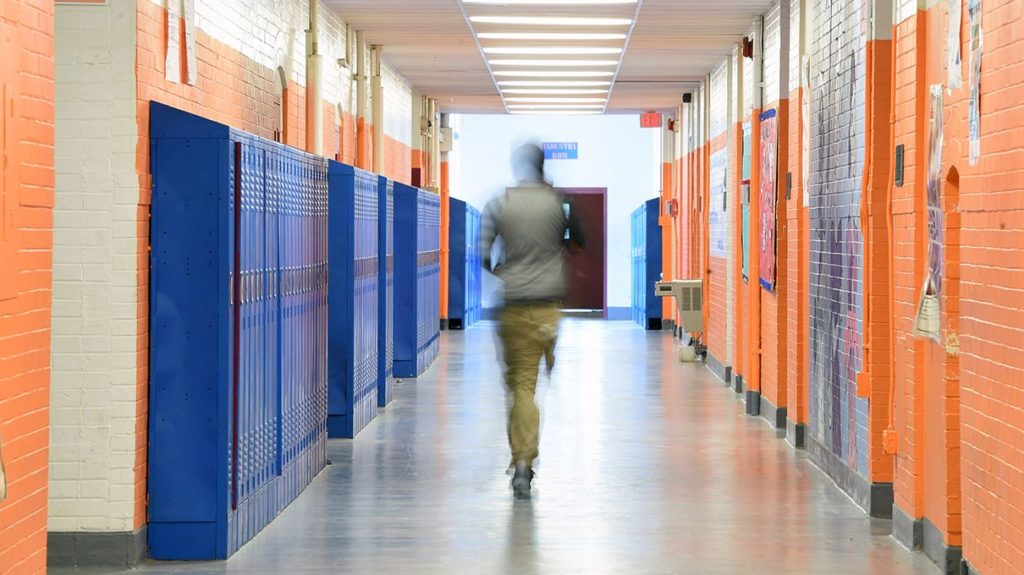Summit Is Better:
Equal Opportunity Learning

Equal opportunity is not just about making sure people from different backgrounds have the same chance to learn. In an educational setting, equal opportunity means that every learning style is treated equally and given the same opportunities for a superior education experience.
The staff at Summit Academy knows that no two students are alike, and therefore, no two students learn alike. That is why we focus on our students as individuals and let them shape their learning experience, not the other way around. While we push all of our students towards the same goal of academic success, we know that they will each take a different journey to get there, and we are there with them every step of the way.
When you chose Summit Academy for your child, you sent a clear message. You told us that you did not want your child to be treated as part of a crowd. You said that you did not want them to get left behind so that others could move forward. You told us that you wanted your child to be a part of something and to be given their chance to shine on the academic field. You made it clear that you didn’t just want a high school diploma for them, but a college degree.
For the 2015-16 school year, Summit Academy had one of Michigan’s top 50 highest graduation rates with a nearly 99% graduation rate. We heard your message loud and clear, and we have no doubt that 100% is just on the horizon.
No matter how your child learns, or what their needs are, every Summit Academy student has the opportunity to be a part of that success.
Five Ways to Improve Your Child’s Literacy

Literacy is about more than just being able to read and write. At its core, literacy is about the art of comprehension and communication.
As high school students advance in their curriculum and progress towards college, how literate they are will directly impact the level of success they obtain.
Fortunately, literacy is a skill that can constantly be improved with time and effort. Regardless of where your child falls in terms of comprehension and communication, these five tips can help them continue to develop their literacy skills.
1. Encourage reading every day.
The material isn’t as important as the act of reading. Have your teen read something they find enjoyable for as little as twenty minutes per day.
2. Write letters with them.
If email is preferred, sit with them and help them compose thoughtful emails to friends or relatives each week. Writing to someone will allow them to improve their ability to share their thoughts in a meaningful and organized way.
3. Suggest creative writing or journaling as an outlet for your teen.
Poetry, short stories, and journaling involves storytelling. Being able to tell a good story in writing is a good indicator of how well your child can communicate.
4. Learn a new word each day.
There are plenty of apps and even calendars that will provide you with a new word and its definition each day. Make it a challenge for your family to use the word in a sentence at some point during the day to expand everyone’s vocabulary.
5. Read a story in the paper or a web article.
Then discuss it together. You can gauge your child’s comprehension skills by asking them questions on what you read and listening to their thoughts.
May Activity:
Create a Summit Time Capsule

High school is a pivotal time in a student’s life. During these precious 4 years, your child will experience so many changes in their interests, personality, and their views on the world.
We would like to encourage you to help your teen capture this time by creating a time capsule that represents their experience at Summit Academy North High School. Simply follow the instructions below to get started.
Time Capsule Materials:
+ A Shoe Box
+ Black and green paint or wrapping paper
+ Tape for sealing your shoe box
Items for Inside Your Time Capsule:
+ A picture that captures a good memory at Summit Academy North High School.
+ A note about your favorite teacher and why they inspire you.
+ A letter to your future self that includes the following: What you love most about yourself right now, your favorite activity, what career choice you hope you will have in the future, and how high school has changed you.
+ Lyrics from your favorite song this year.
+ One assignment you were proud of this year.
+ One item that is symbolic of your time at Summit Academy North High School.
Instructions
- Decorate your shoe box however you want, using the school colors.
- Decide on a date that you would like to open your Summit Academy Time Capsule (5 years or more for the most impact).
- Place all of your items into your capsule.
- Seal up your box with tape. Make sure it is sealed well enough so that it stays closed.
- Pick a place to store your capsule. Choose somewhere that you will not be tempted to retrieve your capsule from prior to the open date, but that it will be safe from harm.
Resources:
Enabling vs. Supporting Your Child

Supporting a child means providing assistance when they are in need of help. This could involve giving them a hand with homework when they are stuck on a question, or being a shoulder to cry on when they have had a bad day.
Providing support can turn into enabling when, instead of helping your child figure out the answer to a question, you end up completing their homework for them. In this scenario, you would be enabling laziness by not enforcing the need for your child to do their own homework. Rather than providing a helping hand, enabling is the act of continuing a problem as opposed to solving it.
How to Support without Enabling
It is possible to show your child that you care for and support them without enabling their behavior. One thing you can do is reason with them. At the high school level, students are more than capable of grasping cause and effect scenarios. For example, if your child is refusing to complete their homework, explain to them what the result of that choice will be (no points for the assignment). Reason with them that the only way to prevent that result is for them to change their behavior.
In order for reasoning to be effective, you must also be willing to let your child deal with the consequences of their actions. Allowing your child to stay home from school because they did not finish their homework or completing it for them would undermine the reason for having them complete their own homework. It may be difficult to see your child’s grades suffer, but experiencing that consequence will reinforce the need to for them to do what is expected of them.
It will also help to put limits on what you expect from yourself as a parent. We all want success for our children. However, only they can truly guarantee their own success. Establish limits on the type of support you will provide and what it entails. Make it clear to your child what you expect from them and express confidence in their abilities. Giving students room to grow and allowing them to act independently when appropriate will benefit you both in the long term.
Does Changing Schools Hurt Your Child?

Whether by choice or necessity, families may move to a different location from time to time. In fact, parents may even be tempted to move into a perceived better school district. Regardless of the reason, strongly considering the impact changing schools will have on your child is essential before making a move.
Here are some common issues children who change schools often contend with:
The Curriculum Varies from School to School
Many parents believe that children are taught the same material at each grade level, no matter where they attend school. This is not the case. Each school structures their curriculum differently, especially at the high school level. The change in pace and the content of the curriculum between schools can set a student back 1 ½ – 2 years academically.
Social Skills Can Suffer
The older a student gets, the harder it can be for them to make new friends. By the time a student reaches high school, they have usually formed association that is comfortable and stable for them. When a child moves to a new school district, their social life is greatly disrupted and this can cause them to withdraw from others and to experience a social setback, which can also distract from their academic progress.
A Lack of Motivation May Develop
Students who move frequently during their youth may develop apathy towards school. When students are in the same school district for the duration of their education, they form bonds with their teachers and administrators, and that can inspire them to try harder in school. However, kids who are used to moving may not feel it is worth it to invest in their education at a school they will not attend for long.
We encourage parents to strongly consider their child’s academic and emotional well-being before making the decision to switch schools.
MEET OUR STAFF & STUDENTS
Student:
Cheyenne Bondie

Age: 16
Favorite subject:
“Biology.”
Favorite Teacher:
“Mrs. Bachand and Ms. Johnson.”
Why he loves Summit Academy:
“I love Summit Academy because of all the opportunities I receive. I’ve had a chance to better myself as an individual and as a student with the help of the caring and respectable staff.”
Student:
Jared Lenart

Age: 17
Favorite subject:
“Math.”
Favorite Teacher:
“Mrs. Chapman.”
Why she loves Summit Academy:
“We don’t see anybody as “different” at Summit. Everybody is accepted for who they are.”
Faculty:
Sharon Lehr

Role at Summit Academy:
Sharon has been with Summit Academy for 2 years and currently teaches art.
Sharon in three words:
Creative, Problem solver, Outgoing.
Why she loves Summit Academy:
“I love the different classes I teach and the freedom that I have to create lessons that the students will enjoy. I like being able to work with different materials and the opportunity my students have to do the same.”
Most memorable moment at Summit:
“A great moment for me was the Art Show we had last year where we were able to celebrate the work accomplished by students at all levels. I love when students get to experience that feeling of pride in their work. It is like an “aha moment” where they say, “I did it! That is my work!”
Interesting fact about her:
“I am very active in and out of school. I help out with the drama sets for the spring play, put up artwork in the hallway for display, create décor for Prom, and so much more. Out of school I work second job where I also create art, I create my own artwork, and I play ice hockey all year. I am very busy person, but I like staying busy.”
Summit Academy is better because…
“The range of teachers and subjects at Summit Academy make it an opportunity for students to learn from many different perspectives. The teachers are fully invested in students and the subjects they teach. With each year, the school starts to expand in class opportunities for teachers and students.”
